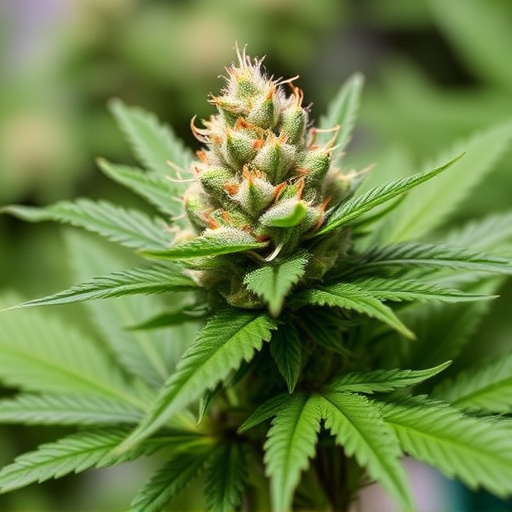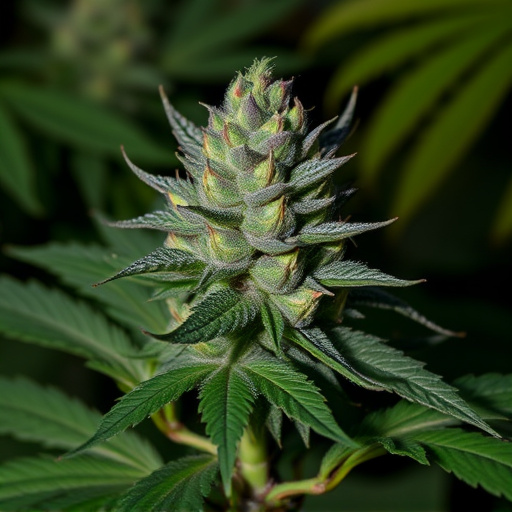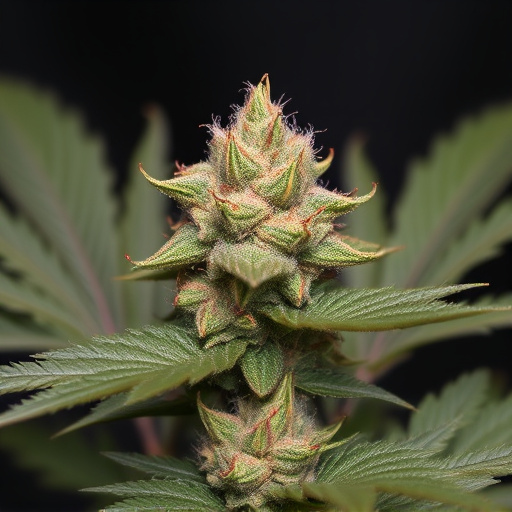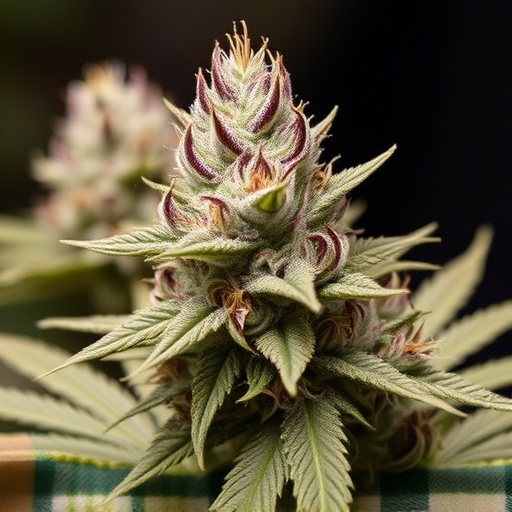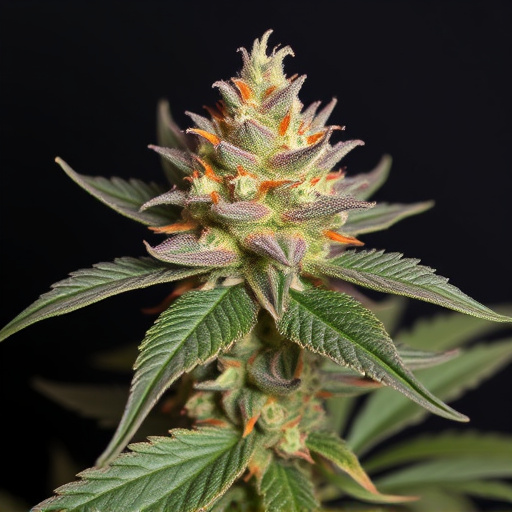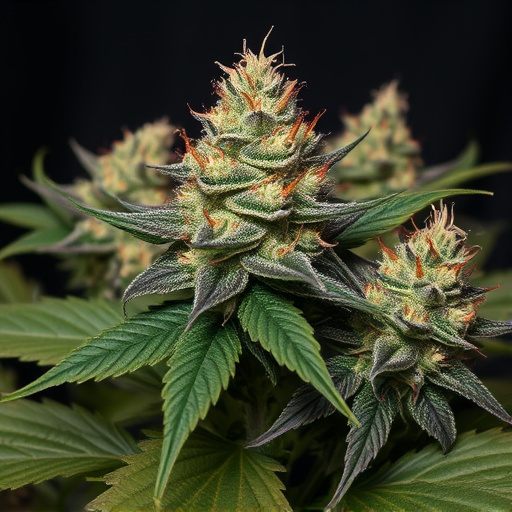Cannabis flower, rich in cannabinoids like THC and CBD, offers therapeutic benefits through various hybrid weed strains. These carefully bred combinations provide targeted relief for specific medical concerns, such as chronic pain, arthritis, and mental health issues. Scientific research highlights cannabis' intricate composition and potential, driving the development of personalized cannabis-based therapies to improve patient quality of life.
Cannabis flower, with its complex chemical composition, has gained significant attention for its potential medical applications. This article delves into the world of cannabis, exploring how its unique properties offer therapeutic benefits. We examine the role of understanding cannabis’ chemical makeup in cultivating specific hybrid weed strains for targeted medical purposes. Additionally, we highlight scientific research that validates its real-world applications, shedding light on this promising natural remedy.
- Understanding Cannabis Flower and Its Chemical Composition
- Exploring Hybrid Weed Strains for Medical Purposes
- Scientific Research and Real-World Applications
Understanding Cannabis Flower and Its Chemical Composition
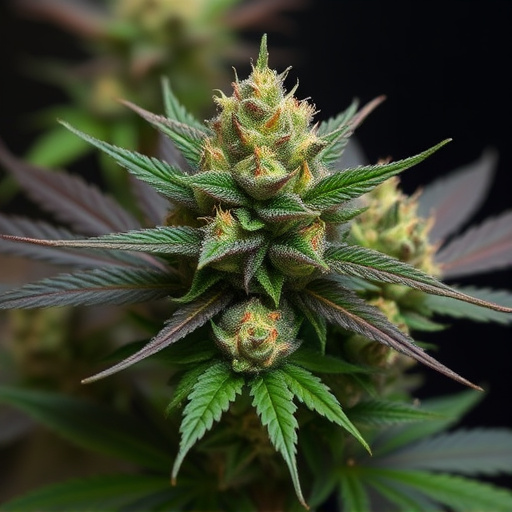
Cannabis flower, also known as marijuana or hemp, is the most well-known and widely used part of the cannabis plant (Cannabis sativa). It contains a diverse range of chemical compounds, including more than 100 unique cannabinoids, terpenes, and flavonoids. Among these, delta-9-tetrahydrocannabinol (THC) and cannabidiol (CBD) are the most studied and commonly known cannabinoids. THC is responsible for the plant’s psychoactive effects, while CBD has gained attention for its potential therapeutic benefits without inducing a “high.”
The cannabis flower’s chemical composition varies depending on the specific strain. Hybrid weed strains, for example, are created through crossbreeding different cannabis plants to combine desirable traits from both parents. This process results in unique cannabinoid and terpene profiles, offering a wide array of effects and potential medical applications. Understanding these chemical components is crucial in navigating the various uses and benefits of cannabis flower in modern medicine.
Exploring Hybrid Weed Strains for Medical Purposes
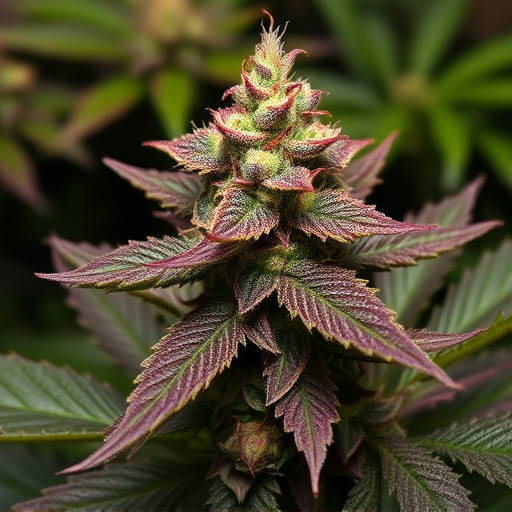
Many medical cannabis users are turning to hybrid weed strains for their diverse therapeutic properties. These strains, carefully bred from a combination of different cannabis plant types, offer a wide range of benefits tailored to specific needs. For instance, some hybrids are known for their potent pain-relieving effects, making them ideal for managing chronic conditions like arthritis or neuropathy. Others focus on mental health support, helping patients cope with anxiety, depression, or insomnia.
The appeal of hybrid weed strains lies in their ability to provide targeted relief without the strong psychotropic effects associated with high-THC strains. By blending specific genetics, breeders create unique profiles that can address particular medical concerns. As research into cannabis continues to evolve, understanding and utilizing these hybrid strains offer promising avenues for personalized medicine, enhancing quality of life for those seeking alternative treatment options.
Scientific Research and Real-World Applications
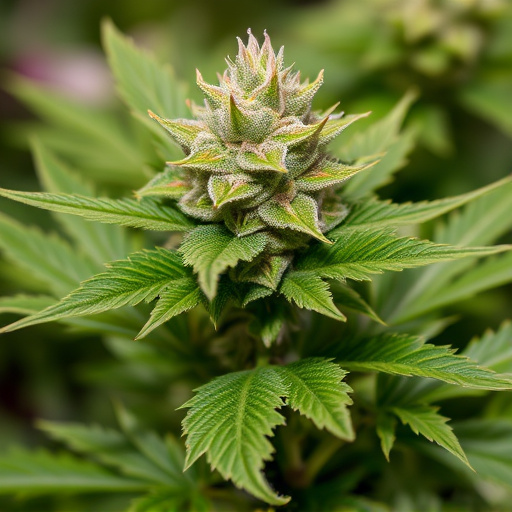
Scientific research into cannabis has led to a growing understanding of its complex composition and potential medical applications. Studies have explored various components within cannabis, including cannabinoids like THC and CBD, and their unique interactions with the human body’s endocannabinoid system. This knowledge has paved the way for real-world applications in medicine.
One area where hybrid weed strains have shown promise is chronic pain management. Certain hybrids, known for their balanced cannabinoid profiles, can effectively alleviate pain without causing excessive sedation. Additionally, cannabis has demonstrated anti-inflammatory properties beneficial for conditions like arthritis and multiple sclerosis. Scientific research continues to uncover novel uses, contributing to the development of cannabis-based therapies and improving patient quality of life.
The medical potential of cannabis flower, particularly its diverse hybrid weed strains, has emerged as a compelling area of study. By understanding the unique chemical composition of these plants and the specific applications of different hybrids, healthcare professionals can harness their therapeutic benefits. Scientific research continues to uncover novel ways in which cannabis-based treatments can improve patient outcomes across various medical conditions. As knowledge expands, so too does the potential for hybrid weed strains to revolutionize healthcare, offering natural solutions for managing pain, anxiety, inflammation, and more.

